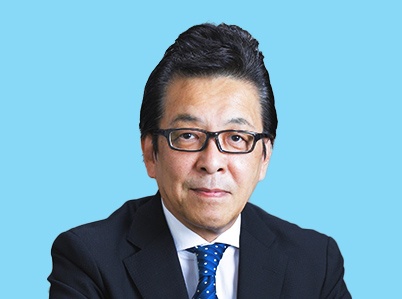Key drivers remain same for cross-border M&A transactions
RECOF has a business network in the Philippines, Indonesia, Thailand, Malaysia, and Singapore. What is Vietnam’s position in RECOF’s investment strategy?
 |
| Masataka “Sam” Yoshida |
Yes, we do have a strong network to these five countries. However, we are by far focusing on Vietnam and 90 per cent of our live deals are between Vietnam and Japan due to various reasons and our own background since our entry to the country.
Since our entry in 2011, we have received 55 buy side mandates from Japanese investors and experienced 45 due diligence plans, but we are proud of is the number of sell-side mandates we have obtained from Vietnamese sellers, which is 35 and growing. It is true that our effort in the past has been crystallising by achieving the most remarkable performance in our history in Vietnam.
RECOF itself is aiming to invest in the same advisory firm in Vietnam, but we have not been successful yet. In parallel, we would like to invest in human resources for the purpose of enhancing the production of corporate bridges between Vietnam and Japan.
What are the recent trends and changes in mergers and acquisitions (M&A) in Japan, and how is this taking place in the Vietnamese market?
Japanese listed companies are under increasing pressure to keep investing in growing businesses, keep focused on the core business, keep paying dividends and not retain too much cash, and to keep their businesses sustainable, though some companies chose to go private or rely on the investments from private equity funds in order to achieve these objectives.
As the domestic market is matured and investment opportunities are limited, it is natural for them to start looking at Vietnam as long as the country can provide good prospects for growth.
The key drivers for Japanese investments have not changed during the last five years. These will be the strong middle-class consumption, the competitive labour force, global supply chains, food (including processing), and IT innovation.
What should the Vietnam business community do to welcome Japanese M&A investment in the near future?
The business community can actively advocate for reforms to make Vietnam a more investor-friendly state. This includes collaborating with the government to eliminate foreign ownership restrictions in various sectors and simplifying investment procedures, opening up more opportunities for Japanese investors.
Improving the existing accounting and auditing systems of companies is another key factor in ensuring greater transparency and attractiveness. Some Vietnamese sellers should consider pricing their deals more reasonably, working to bridge the valuation gaps between sellers and Japanese investors.
A fair and balanced approach to deal pricing will encourage more transactions and create a win-win situation for all parties involved.
What the stars mean:
★ Poor ★ ★ Promising ★★★ Good ★★★★ Very good ★★★★★ Exceptional
 Tag:
Tag:
Related Contents
Latest News
More News
- New rules ease foreign access to Vietnam equities (February 05, 2026 | 17:29)
- Vietnam’s IFC creates bigger stage for M&As (February 01, 2026 | 08:16)
- Game startup Panthera raises $1.5 million in seed funding (January 29, 2026 | 15:13)
- Cool Japan Fund transfers shares of CLK Cold Storage (January 28, 2026 | 17:16)
- Nissha acquires majority stake in Vietnam medical device maker (January 26, 2026 | 15:40)
- BJC to spend $723 million acquiring MM Mega Market Vietnam (January 22, 2026 | 20:29)
- NamiTech raises $4 million in funding (January 20, 2026 | 16:33)
- Livzon subsidiary seeks control of Imexpharm (January 17, 2026 | 15:54)
- Consumer deals drive Vietnam’s M&A rebound in December (January 16, 2026 | 16:08)
- Southeast Asia tech funding rebounds on late-stage deals (January 08, 2026 | 10:35)





















 Mobile Version
Mobile Version